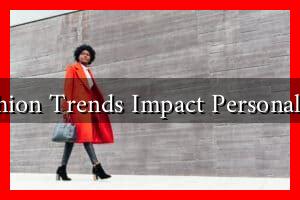-
Table of Contents
How Do Fashion Trends Impact Personal Confidence?
Fashion is more than just clothing; it is a form of self-expression that can significantly influence personal confidence. The way we dress can affect how we perceive ourselves and how others perceive us. In this article, we will explore the intricate relationship between fashion trends and personal confidence, examining how clothing choices can empower individuals and shape their self-image.
The Psychology of Fashion
Fashion has a profound psychological impact on individuals. According to a study published in the journal *Social Psychological and Personality Science*, clothing can influence our thoughts, feelings, and behaviors. This phenomenon, known as “enclothed cognition,” suggests that what we wear can affect our mental state and self-perception.
- Self-Expression: Fashion allows individuals to express their personality, values, and mood. Wearing clothes that resonate with one’s identity can boost self-esteem.
- Social Acceptance: Adhering to current fashion trends can foster a sense of belonging. People often feel more confident when they are dressed in a way that aligns with societal norms.
- First Impressions: Studies show that first impressions are often based on appearance. Dressing well can enhance confidence in social situations, leading to more positive interactions.
Fashion Trends and Their Influence on Confidence
Fashion trends are constantly evolving, and they can have varying effects on personal confidence. Here are some ways in which trends can impact how individuals feel about themselves:
1. Empowerment Through Style
Many fashion trends promote empowerment. For instance, the rise of body positivity has led to the popularity of inclusive sizing and diverse representations in fashion. Brands like Aerie and Savage X Fenty have embraced this movement, encouraging individuals to celebrate their bodies regardless of size. This shift has helped many feel more confident in their skin.
2. The Role of Social Media
Social media platforms like Instagram and TikTok have accelerated the spread of fashion trends. Influencers often set the tone for what is considered stylish, impacting followers’ choices. While this can lead to increased confidence for some, it can also create pressure to conform to unrealistic standards.
- Positive Impact: Many users find inspiration and confidence in the diverse styles showcased online.
- Negative Impact: Others may experience anxiety or low self-esteem when comparing themselves to curated images of perfection.
3. The Power of Professional Attire
In professional settings, the right attire can significantly boost confidence. A study by the *Journal of Experimental Social Psychology* found that individuals who dressed in formal clothing performed better in cognitive tasks. This suggests that dressing well for work can enhance not only confidence but also productivity.
Case Studies: Real-Life Examples
Several case studies illustrate the impact of fashion on personal confidence:
- Project Runway Contestants: Many contestants have reported that wearing designer clothing during the show boosted their confidence, allowing them to perform better under pressure.
- Fashion Therapy: Some therapists use fashion as a tool for building self-esteem in clients. By helping individuals choose outfits that make them feel good, they can improve their overall mental health.
Statistics on Fashion and Confidence
Research supports the connection between fashion and confidence:
- A survey by *Dove* found that 80% of women feel more confident when they wear clothes that make them feel beautiful.
- According to a study by *The American Psychological Association*, individuals who dress well report higher levels of self-esteem and satisfaction with their lives.
Conclusion
Fashion trends play a crucial role in shaping personal confidence. From empowering individuals through self-expression to influencing perceptions in social and professional settings, the impact of clothing choices is undeniable. While trends can inspire and uplift, they can also create pressure to conform to unrealistic standards. Ultimately, the key to harnessing the power of fashion lies in understanding oneself and choosing styles that resonate personally. By doing so, individuals can enhance their confidence and embrace their unique identities.
For more insights on the psychology of fashion, you can visit Psychology Today.

